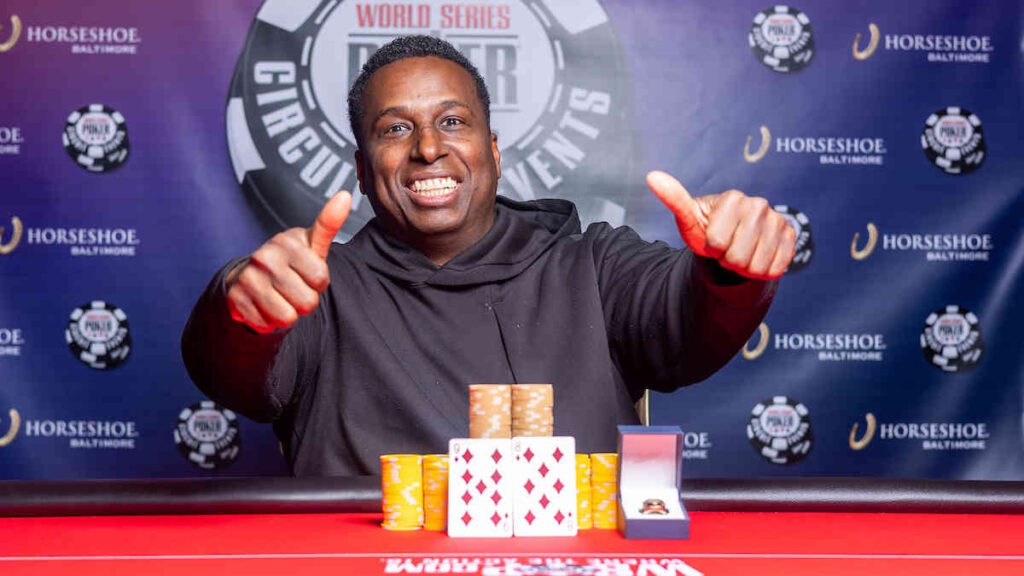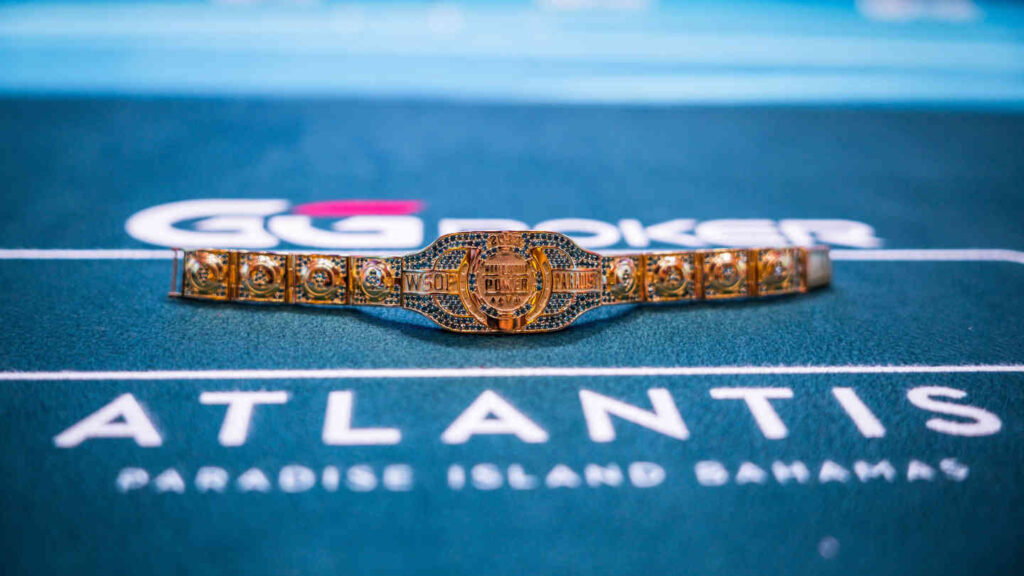If you follow happenings in the poker world even very casually, you’re probably aware of the most recent controversy that saw Divyam Satyarthi eliminated from the WSOP Circuit Baltimore in third place after the dealer misread his hands.
On the 5♣ river, the dealer announced the straight for Maurice Hawkins, failing to recognize there were four clubs on the board, giving Satyarthi a winning flush.
Nobody said anything at the time. The tournament continued, and Hawkins went on to win another ring for his ever-growing collection. It was only later that the video of the hand revealed the mistake, creating a huge debate in the community.
There was nothing to be done about what had happened, but the situation raised questions about whether it was the responsibility of other players and even members of poker media in the room to say something if and when they noticed a mistake of this nature.
Protecting the integrity of the game is important, but when it comes to showdowns, the only official rule is that “card speak.” When what they have to say is misinterpreted by those handling the game (i.e., dealers and floors), who, if anyone, is next in line to step in?
Players: Between a Rock and a Hard Place
Having played poker for many years and in many different types of settings, I can say that getting involved in a hand that you’re not a part of, even if it is just to point out an obvious mistake, can have unpredictable outcomes, especially if it is an important pot.
The player that you are “taking the pot away from” may not necessarily take it with grace. Your honest desire to maintain the integrity of the game can lead to verbal abuse, being accused of colluding, and all sorts of other nonsense I’m sure we’ve all heard at the tables.
Now, poker players do need to grow a thick skin and not worry about these things too much, but this is the situation where there is no real upside for the intervening player. In some cases, such as the most recent example, the other two players benefited directly from the dealer’s mistake.
Even if one or both of them noticed, should they say something and cost themselves tens of thousands?
I would argue that this is a big ask in almost any environment, but at a poker table, playing a game where the only real measure of success is the amount of money you win, it is a bit much to expect. Especially since you can be fairly certain that, if tables were turned, not many players would be rushing to fix things.
It may be a nice and noble thing to do, but virtually no upside other than feeling good about doing the right thing, it’s really hard to expect outside of games where most players know each other pretty well and have a friendly relationship away from the tables.
Poker Media: It’s Not Their Job to Interfere
Since the mistake was discovered thanks to a video filmed by a poker reporter, the attention shifted towards the poker media, wondering if it is their responsibility to say something when mistakes happen.
According to the pool by DJ MacKinnon, it seems the majority believes that the answer is “yes”:
However, there are a few problems with this, and the first one is the same as with players intervening. The player who is affected by your intervention will often not be happy, and they can escalate things even more, given that you’re not even playing in the game.
You’re some guy hanging around, taking photos, and writing things. Some players will be annoyed by your mere presence near the tables, and that’s just the reality. Now you’re getting out of line, and instead of silently watching, you are getting in the middle of things.
Secondly, members of the media are usually guests at events. They work with operators, but they’re not members of the staff. So, if members of the media should speak, then should also random people on the rail get involved when they feel or think something is not right?
As Deeb rightly points out, it is a slippery slope. There are people whose job it is to run tournaments, enforce rules, and make sure pots are awarded correctly. Getting third parties involved isn’t something anyone wants in the long run.
The idea may sound good on paper, but what happens when players and/or dealers start feeling like the media is getting involved too much? Or when their intervention turns out to be wrong, and now everyone has lost ten minutes figuring things out?
I’m not saying that no one should ever say anything. If there is a way to discretely point out a mistake and fix it without too much disruption, that’s fine, but trying to make this any kind of responsibility or duty doesn’t make sense, at least not in the current setup.
The Dealer and Players in the Hand: You Can Never Lose Focus
I can say without exaggerating that I had the pot pushed the wrong way at least a dozen times (it happens more often in small-stakes private games, I guess). Not once did the chips end in my opponent’s stack because I always pay attention.
The reality of life is that we all make mistakes. Dealers at poker tables are not robots. They can be tired, distracted, or having a really bad day. Or, they could have ulterior motives. The bottom line is that it doesn’t matter, and it goes beyond the scope of this discussion what should or shouldn’t happen when a dealer makes a financially significant mistake.
It is down to you, as a player, to protect your hand and your equity all the way through. In poker, there is a “one player per hand” rule. This rule doesn’t actually apply once cards are on their backs, but its spirit tells you that the ultimate responsibility is yours.
Should casinos and poker rooms maybe take more responsibility in these matters and find ways to make it up to affected players? Perhaps – after all, if their employee makes a mistake, it would be fair for them to take some responsibility. But that’s a whole different can of worms.
The bottom line is if your cards don’t speak for themselves, then you are the one who needs to give them a voice. You shouldn’t rely on anyone else to do it for you.


